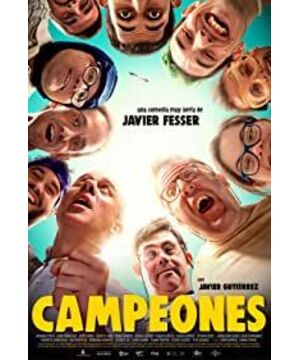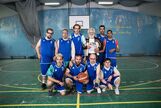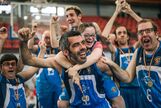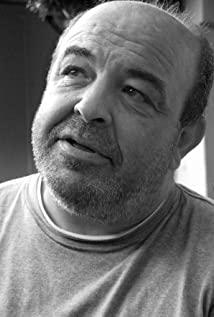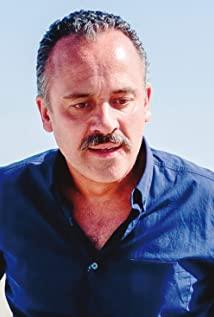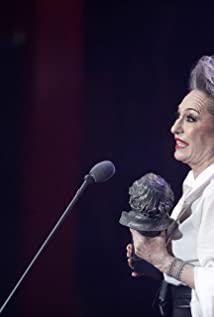As a country that has always been at the forefront of the West in terms of appeals and actions on social issues such as women's equal rights, gay rights, domestic violence, and the rights and interests of the disabled and vulnerable groups, Spain is still at the forefront of the psychological construction of vulnerable groups and social respect protection. There is a lot of experience we can learn from. Madrid holds the world's largest LGBT parade every year, which is colorful and eye-catching, but at the same time promotes LGBT culture. In normal times, in addition to often seeing parades on the streets striving for the interests and rights of various groups, the popularization of self-confidence and social activities of the disadvantaged groups on TV, and foundations have effectively promoted the society's support for these groups. Respect and tolerance of vulnerable groups. So a Spaniard can swear on the street, or even scold the Prime Minister, but shouting "maricón" to a homosexual would be considered an extremely uncivilized performance.
The film "Basketball Champions" is a film based on the true story of the Spanish Aderes Burjassot disabled basketball team. This honorary team composed of "mentally disabled people" has won 12 Spanish league championships between 1999 and 2014. In this film, three of the players are set as patients with Down syndrome, and it is also hoped that through this work, the society will have more understanding and attention to this special group.
Aderes Burjassot basketball team (yellow jersey) and basketball champion actor (blue jersey)
The character setting of the male protagonist Marco is an assistant coach of a professional team. He was sentenced by a judge to volunteer for 90 days in a "disabled group club" because of a personal attack due to disagreement with the head coach. Marco is a somewhat ignorant and arrogant person who is full of stereotypes about "handicapped" and homosexuality. He would call him a gay "maricon", although he was immediately arranged by the director to have his mother slap him and call a person with mental retardation a "fool". At the same time, Marco is also a "love incompetent" who escaped his responsibilities in love because his girlfriend wanted a child with "eyes like him", and was scared to flee in love. But this time, coaching the "los amigos" (friends) basketball team made up of people with disabilities has changed his world even more.
There are three things I appreciate about this film. First, it boldly uses the true character of a patient with Down syndrome. Down syndrome was first called "Mongolian disease" or "Mongolian dementia", because Dr. John Down in the United Kingdom found that his patient's face was wider than normal, and the eyes were small and raised, which looked similar to the Mongolian race. However, in today's medical profession, this term is considered to involve racial discrimination and is no longer used. (From Wikipedia) Patients with Down syndrome are also referred to as "international people" due to the similarities in the faces of patients from different countries. You can find that Down's disease patients in different countries are actually very similar in height and appearance. Patients usually have an IQ between the ages of eight and nine, which means they have mild to moderate intellectual disability. There is currently no cure for Down syndrome, and patients may live to be around 59 to 60 years old.
Suffice it to say that nothing is more convincing than having this group of people with Down Syndrome starring in their own right to prove to people that they're not stupid. The old man in charge of the club in the film said that "what they have is "other talents compared to "ordinary people", such as they can accurately determine which flight is flying in the sky. They can also form bands, fix motorcycles, and do simple jobs like normal people. Sometimes they even have more honesty than normal people, embracing these qualities. They also have normal emotions, anger, and sorrow, and they can "hate people", and they can even have a very high emotional intelligence. At the end of the story, when it was discovered that the coach could not fulfill his promise to continue coaching without saying goodbye, these "disabled people" did not apologize, but were just grateful. At this time, the tough guy coach left tears of shame and emotion. They would rush to resolve the embarrassment skillfully, "It must be that Manuel is holding him too tightly", "No, he is allergic, right? I sometimes have allergies too. weeping".
Secondly, the language and emotional processing of this film is very in place. Anyone who has watched Spanish TV dramas knows that Spanish TV dramas are often filled with banya people’s nagging parents, who are endlessly complaining and scolding the country. This used to be one of the main reasons why I couldn’t watch Spanish movies and TV dramas. . Even the explosion of the robbery of the money-printing building like "The House of Paper" can make me abandon the show. However, in this film of "standing in the center of the world and calling for love", it may also be due to the special status of these "mentally handicapped persons with disabilities", so the dialogues are concise, direct and powerful. Everything is straightforward, and there is no deliberate sensationalism.
The emotional processing in the film is very clear. Coaches and disabled players have a "mutual healing" relationship. The coach is a person who is "incompetent in love". He obviously has a girlfriend he loves deeply, but he is afraid of making a promise and just avoids it. The absence of a father figure from childhood made him a "father" with deep fears. While coaching the "los amigos" friend team, he showed extraordinary patience and responsibility to these "adult kids", established "trust" with his teammates, and finally led the team to the National League. finals. In the process, Marco finally overcame his fear of not being a "father".
For this special group of players, Juanma overcame the fear of water and fell in love with bathing, and the fear of being abandoned was cured by "trustworthiness" and "responsibility", and all the players were happy in the basketball game , they gained "understanding and respect". At the end of the film, they thanked the coach for saying "you treat us like ordinary people", which is also the voice of all disabled people, who long for "normal treatment" and "dignity" as a person from social life.
Finally, what I want to say is that the plot of this film seems to be a cliché "basketball dream story", but the values conveyed are not bad at all. In the finals of the National Basketball League game, the "Friends" team didn't miraculously hit the final 3-pointer to win the championship. But after winning the second place, they happily hugged and congratulated the first-place "Short Team" and shouted that we are all champions. Yes, our life is not an inspirational drama, and it is not so often blessed by luck, but the important thing is not to give up and work hard, and enjoy the process of breaking through the self.
After the game, everyone celebrated on the beach, laughing and playing. The coach said from the bottom of his heart that he would never give up on "los amigos". I thought the story would end in this beautiful happy ending. However, the director did not give up the last chance to express himself. After receiving the call, Marco chose to coach a better team without hesitation. At the club, he did not even have the courage to "say goodbye" in person. He originally planned to sneak away. On the contrary, the tolerance and understanding of these "adult children" comforted Marco who missed the appointment. Maybe "relatively speaking", they are the normal people we are taught to be "honest, tolerant, and abiding by conventions".
View more about Champions reviews


